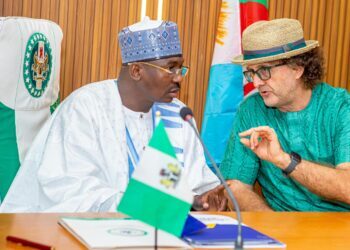The Nigeria Security Civil Defence Corps (NSCDC) has arrested five suspects in Kano for alleged vandalism and theft.
The Commandant of the Corps in Kano State, Mohammad Lawal-Falala, said this in a statement issued on Tuesday in Kano.
He said the suspects were apprehended by the anti-vandalism unit of the corps during midnight patrols.
Two suspects, Adnan Umar (26) and Musa Shuayb (24), were caught vandalising streetlight armored cables on IBB Way, Fagge/Kofar Wambai new market.
He said they were also attempting to steal three rolls of copper wire.
In a separate incident, according to him, three suspected motorcycle thieves, including a receiver of the stolen motorcycle were arrest by the corps.
The suspects are Saminu Magaji (19), Haruna Idris (22), and Ahmed Abubakar (38), the receiver. The Commandant noted that two other suspects are still at large.
He alleged that the suspects, who hail from Gwammaja, Dala LGA, Kano State, specialised into homes, stealing motorcycles and personal belongings.
He said the suspects were being investigated and will be charged to court upon completion of the investigation. (NAN)











